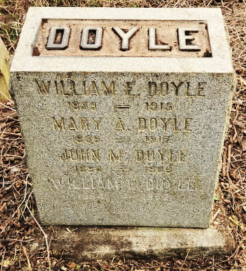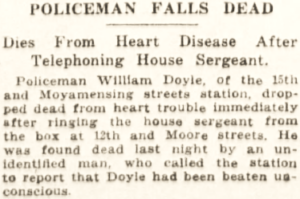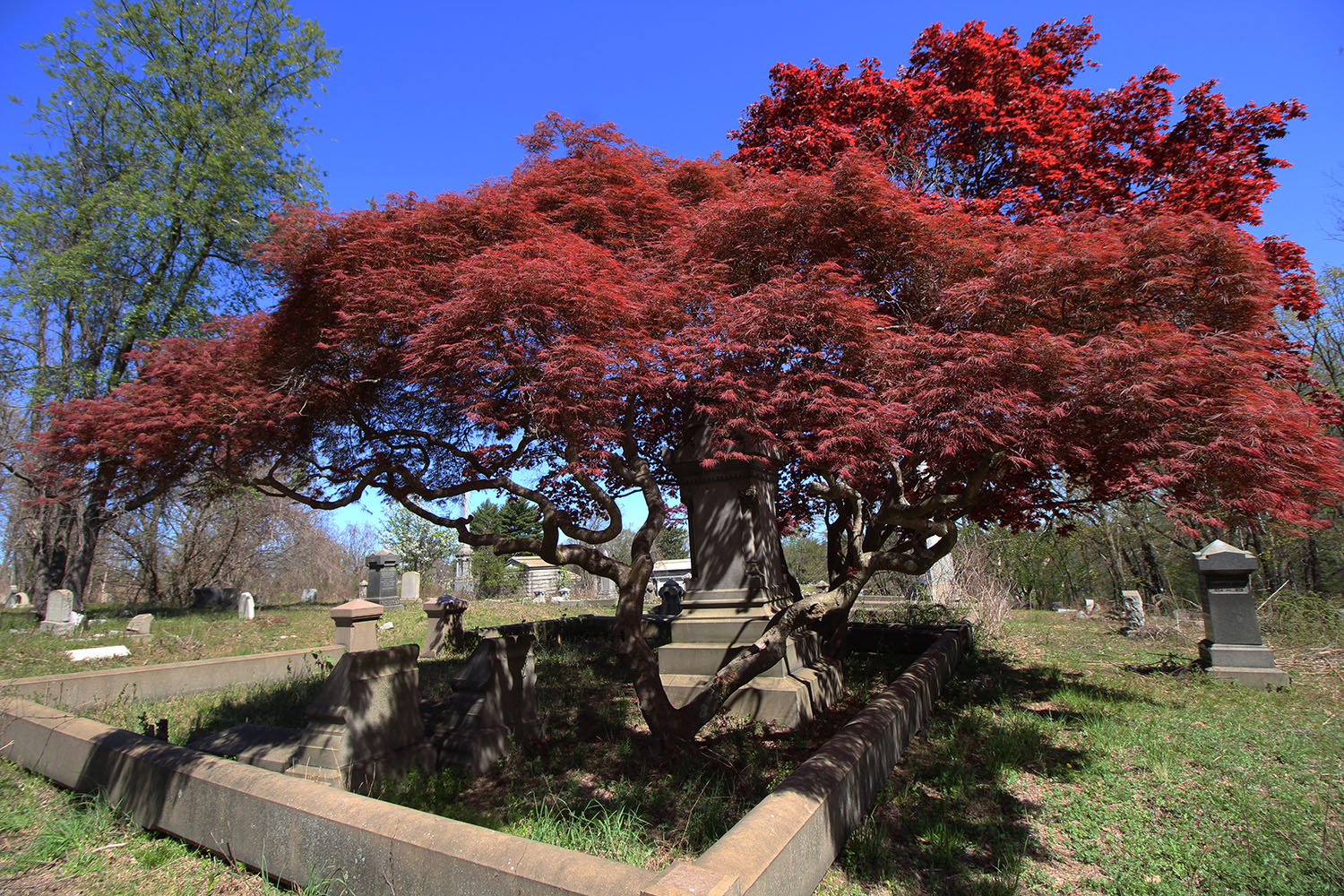Title: Police officer
Birthdate: July 18,1859
Death Date: March 1, 1915
Plot Location: Section 13, Lot 23, east quarter

When he was three years old, little Billy probably asked where his daddy was, but probably didn’t remember his absence when he was older. He would have later learned that it was due to the Civil War. Captain John Doyle led Company A of the 154th Pennsylvania Volunteer Infantry from December of 1862 to June, 1863.
Bill may have never known his father was also in the Mexican War, but only for a month. He developed asthma and got a disability discharge in 1847. John signed up for a three-month tour when the Civil War first broke out in 1861 (because it wasn’t expected to last that long), and even volunteered to return again right after he was discharged in 1863. Pennsylvania recruited an emergency militia just before the rebels invaded the state, but after they were repelled at Gettysburg the militia was disbanded. The lesson for Bill was that, on four different occasions, John Doyle never shrank from doing his duty.
The decision about serving his country was not one that Bill ever had to consider. The first job on his résumé was a dyer in a textile mill, a job he held for a dozen years or more. Mary Kitcherman became his wife for life in 1879, five months before the first of five children was born.
In the mid 1880s Bill tried being a firefighter. There was a sense of duty and nobleness to the position but it didn’t suit him, so he went back to the mill. A real sense of fulfillment came when he became a Philadelphia police officer in 1895. Had his father not died two years earlier, it certainly would have made him proud.
Unfortunately, party politics involved itself in the chain of command. It’s not known if Bill saw this behavior, but if an applicant was sponsored by a ward leader, he would be told “to look the other way” with certain vice operators. They would pay him for his silence and that money was forwarded to party bosses. Some reforms were implemented by a new mayor just before World War I, but the corruption on the force in the early 1900s only grew  worse with the introduction of Prohibition.
worse with the introduction of Prohibition.
About the time Bill would be celebrating his 20th anniversary as a bluecoat, he was attacked one night and beaten so badly his heart couldn’t take it. This newspaper article describes the circumstances. The staff at St. Agnes Hospital declared him dead on arrival due to his weakened heart. The news was reported to his wife and it shook her to the point of suicide. Another newspaper story reported her  response this way:
response this way:
His grave marker in Section 13 remembers Bill, Mary, and their two boys. Their three daughters married and were buried in other cemeteries. The grave  of John Doyle and his wife are in Section 132, across the creek next to the Naval Plot.
of John Doyle and his wife are in Section 132, across the creek next to the Naval Plot.

Support the Friends of Mount Moriah
Help us in our mission to restore and maintain the beautiful Mount Moriah Cemetery by donating to our cause or volunteering at one of our clean-up events.

